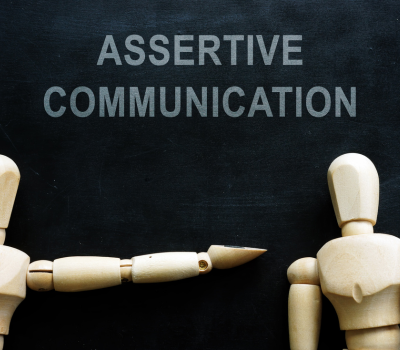Learning Programme
Culture & Business Etiquette Training
Cultural Awareness
Participants are introduced to various cultures, their traditions, values, and communication styles. This awareness helps employees become more sensitive to cultural differences and avoid unintentional misunderstandings.
Cross-Cultural Communication
Cross-Cultural Communication: Effective communication is vital in international business settings. The training focuses on improving verbal and non-verbal communication skills to ensure clear and respectful interactions with individuals from diverse backgrounds.

Effective Business Writing & Listening Skills

Importance of Clear and Concise Communication
The training highlights the significance of clear and concise communication in the business world. Participants learn that effective business writing and listening skills are essential for conveying ideas, instructions, and information accurately.
Understanding the Audience
Training emphasizes the importance of knowing the target audience for business writing and listening. Participants learn how to tailor their messages to suit the needs and preferences of different stakeholders.
Assertiveness Training
Understanding Assertiveness:
Define assertiveness and differentiate it from aggression and passivity.Explore the benefits of assertiveness in personal and professional life, such as improved self-esteem, enhanced relationships, and increased productivi
Recognizing Communication Styles
Identify different communication styles, including assertive, aggressive, passive, and passive-aggressive, to better understand your current approach.Learn how to adapt your communication style to suit different situations while remaining true to your assertive principles.


Assertive Communication Skills
Master the art of “I” statements to express feelings, thoughts, and needs without being confrontational.Develop active listening skills to enhance understanding and foster meaningful conversations.
Handling Criticism and Feedback
Learn how to accept and deliver constructive criticism assertively, turning it into an opportunity for growth.Explore techniques to manage defensive reactions and respond positively to feedback.
Interview Skills & Dealing with Interview Anxiety
Understanding the Interview Process
Learn about the different types of job interviews, such as behavioral, situational, and panel interviews, to tailor your approach accordingly.Familiarize yourself with common interview questions and understand what employers seek in potential candidates.
Pre-Interview Preparation
Develop a personalized interview preparation checklist that includes researching the company, understanding the job role, and reviewing your resume and qualifications.
Learn how to make a positive first impression, from dressing professionally to arriving on time.

Detail & Critical Thinking Training

The Art of Accuracy
Understand the connection between attention to detail and accuracy in completing tasks.Explore strategies for reducing errors and maintaining precision in your work.
Time Management and Prioritization
Identify how effective time management and task prioritization contribute to improved attention to detail.
Learn to allocate appropriate time for each task to avoid rushing and potential mistakes.
Prioritization & Time Management
Understanding the Importance of Prioritization
Recognize how prioritization impacts productivity, decision-making, and overall success.Learn the consequences of failing to prioritize and its effects on personal and professional life.
Time Management
Recognize the principles of effective time management, such as setting clear boundaries, avoiding multitasking, and creating a conducive work environment.Learn how effective time management leads to increased productivity and reduced stress.

Interpersonal Skills

Effective Communication
Master the art of clear, concise, and assertive communication to convey thoughts and ideas effectively.Explore various communication styles and adaptability in different situations to foster open dialogue
Resolving Difficult Situations
Develop strategies for handling challenging or uncomfortable situations diplomatically.Explore techniques for providing constructive feedback and managing difficult conversations.
Perception Management
Understanding Perception Management:
Define perception management and its importance in personal and professional life.Explore how perceptions are formed, influenced, and how they impact relationships and opportunities.
Building Credibility and Trust
Understand the elements of credibility, including competence, reliability, and integrity.Learn to demonstrate trustworthiness in professional and personal interactions.

Understanding Ownership and Accountability

Effective Communication
Define ownership and accountability as the willingness to take responsibility for one’s actions and outcomes.Explore the importance of these qualities in personal development, teamwork, and organizational success.
Developing a Sense of Ownership
Learn strategies to develop a strong sense of ownership in individuals, encouraging them to go beyond their designated roles and contribute proactively.Explore the relationship between ownership, self-motivation, and commitment to excellence.
Emotional Intelligence
Enhancing Social and Emotional Competence
Emotional intelligence (EI) is the ability to recognize, understand, and manage one’s own emotions while effectively navigating and influencing the emotions of others. It plays a vital role in personal and professional success, fostering strong relationships, effective communication, and adaptability in various situations. This comprehensive emotional intelligence training program delves into the principles and practical techniques to develop social and emotional competence, empowering individuals to thrive both personally and professionally.


Understanding Emotional Intelligence
Define emotional intelligence and its components, including self-awareness, self-regulation, empathy, and social skills.Explore the importance of EI in various aspects of life, such as decision-making, leadership, and building meaningful relationships.
Effective Communication

Clear and Concise Expression
Clarity is the foundation of effective communication. Messages should be conveyed in a straightforward manner, avoiding ambiguity and jargon. Use simple language that can be easily understood by the recipient. Avoid convoluted sentences and unnecessary details, as they can lead to misunderstandings.
Effective Communication
Define ownership and accountability as the willingness to take responsibility for one’s actions and outcomes.Explore the importance of these qualities in personal development, teamwork, and organizational success.
Change Management

Assessment and Planning
Identify the need for change: Understand the reasons and drivers behind the need for change. This could be due to external factors such as market shifts or internal factors such as improving efficiency.
Creating a Vision
Develop a compelling vision for the future state: Clearly articulate the benefits and advantages of the proposed changes. The vision should inspire and motivate employees to support the change.
Conflict Managment

Managing Difficult Conversations
Participants are taught de-escalation strategies to prevent conflicts from intensifying and becoming more challenging to resolve.Managing high emotions: Training provides techniques for managing emotions during challenging conversations and maintaining composure.
Cultural Competence and Diversity
Understanding cultural influences: Conflict management training may address cultural factors that influence communication and conflict resolution approaches.Respect for diversity: Participants learn the significance of respecting and valuing diverse perspectives and backgrounds.
Positive Attitute & Goal Setting

Practice Relaxation Techniques
Incorporate relaxation techniques like deep breathing, meditation, yoga, or progressive muscle relaxation into your daily routine. These practices can calm the mind and reduce physical tension.
Social Support
Talk to friends, family, or a support network about your stressors. Sharing your feelings with others can provide emotional relief and support.
